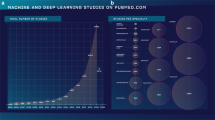Abstract
Experts in medical informatics have argued for the incorporation of ever more machine-learning algorithms into medical care. As artificial intelligence (AI) research advances, such technologies raise the possibility of an “iDoctor,” a machine theoretically capable of replacing the judgment of primary care physicians. In this article, I draw on Martin Heidegger’s critique of technology to show how an algorithmic approach to medicine distorts the physician–patient relationship. Among other problems, AI cannot adapt guidelines according to the individual patient’s needs. In response to the objection that AI could develop this capacity, I use Hubert Dreyfus’s analysis of AI to argue that attention to the needs of each patient requires the physician to attune his or her perception to the patient’s history and physical exam, an ability that seems uniquely human. Human physician judgment will remain better suited to the practice of primary care despite anticipated advances in AI technology.
Similar content being viewed by others
Explore related subjects
Discover the latest articles and news from researchers in related subjects, suggested using machine learning.Notes
For ease of reference, I use the term primary care physician throughout this paper. However, in so doing I do not mean to exclude other providers involved in primary care, such as nurse practitioners and physician assistants.
References
Parikh, Ravi B., Meetali Kakad, and David W. Bates. 2016. Integrating predictive analytics into high-value care: The dawn of precision delivery. Journal of the American Medical Association 315: 651–652.
Weisberg, Jacob. 2016. We are hopelessly hooked. New York Review of Books. http://www.nybooks.com/articles/2016/02/25/we-are-hopelessly-hooked.
Turkle, Sherry. 2015. Reclaiming conversation: The power of talk in a digital age. New York: Penguin.
Dreyfus, Hubert L. 1992. What computers still can’t do: A critique of artificial reason. Cambridge: MIT Press.
Heidegger, Martin. 1993. The question concerning technology. In Basic writings, rev. ed, ed. David Farrell Krell, 307–341. San Francisco: HarperCollins.
Polanyi, Michael. 1958. Personal knowledge: Towards a post-critical philosophy. Chicago: University of Chicago Press.
Borgmann, Albert. 1984. Technology and the character of contemporary life: A philosophical inquiry. Chicago: University of Chicago Press.
Heidegger, Martin. 1991. Nietzsche, Vol. 1: The will to power as art; Vol. 2: The eternal recurrence of the same. Trans. David Farrell Krell. San Francisco: HarperCollins.
Heidegger, Martin. 1991. Nietzsche, Vol. 3: The will to power as knowledge and as metaphysics; Vol. 4: Nihilism. Trans. David Farrell Krell. San Francisco: HarperCollins.
Thomson, Iain D. 2005. Heidegger on ontotheology: Technology and the politics of education. Cambridge: Cambridge University Press.
Feenberg, Andrew. 1999. Questioning technology. New York: Routledge.
Heidegger, Martin. 1993. On the essence of truth. Trans. John Sallis. In Basic writings, rev. ed, ed. David Farrell Krell, 111–138. San Francisco: HarperCollins.
Verbeek, Peter-Paul. 2011. Moralizing technology: Understanding and designing the morality of things. Chicago: University of Chicago Press.
Chi, Jeffrey, Maja Artandi, John Kugler, Errol Ozdalga, Poonam Hosamani, Elizabeth Koehler, Lars Osterberg, et al. 2016. The five-minute moment. American Journal of Medicine 129: 792–795.
Dexheimer, Judith W., Thomas R. Talbot, David L. Sanders, S. Trent Rosenbloom, and Dominik Aronsky. 2008. Prompting clinicians about preventive care measures: A systematic review of randomized controlled trials. Journal of the American Medical Informatics Association 15: 311–320.
Goitein, Lara. 2015. Training young doctors: The current crisis. New York Review of Books. http://www.nybooks.com/articles/2015/06/04/training-young-doctors-current-crisis.
Caplan, Arthur L. 2016. Physician burnout is a public health crisis, ethicist says. Medscape. http://www.medscape.com/viewarticle/859300.
MacIntyre, Alasdair. 1984. After virtue: A study in moral theology, 2nd ed. Notre Dame: University of Notre Dame Press.
Brenner, Hermann, Christian Stock, and Michael Hoffmeister. 2014. Effect of screening sigmoidoscopy and screening colonoscopy on colorectal cancer incidence and mortality: Systematic review and meta-analysis of randomised controlled trials and observational studies. BMJ 348: g2467.
Bourdieu, Pierre. 1977. The objective limits of objectivism. In Outline of a theory of practice, 1–71. Trans. Richard Nice. Cambridge: Cambridge University Press.
Searle, John R. 1979. Metaphor. In Expression and meaning: Studies in the theory of speech acts, 76–116. Cambridge: Cambridge University Press.
Lenat, Douglas B., and Edward A. Feigenbaum. 1991. On the thresholds of knowledge. Artificial Intelligence 47: 250–285.
Merleau-Ponty, Maurice. 1962. Phenomenology of perception. Trans. Colin Smith. London: Routledge and Kegan Paul.
Auerbach, David. 2015. Do androids dream of electric bananas? Slate. http://www.slate.com/articles/technology/bitwise/2015/07/google_deepdream_it_s_dazzling_creepy_and_tells_us_a_lot_about_the_future.html.
Norman, G.R. 1988. Problem-solving skills, solving problems and problem-based learning. Medical Education 22: 279–286.
Brody, Howard. 2012. On talking and touching in medicine. Journal of Pain and Palliative Care Pharmacotherapy 26: 165–166.
Anthony, Samuel English. 2016. The trollable self-driving car. Slate. http://www.slate.com/articles/technology/future_tense/2016/03/google_self_driving_cars_lack_a_human_s_intuition_for_what_other_drivers.html.
MacIntyre, Alasdair. 1999. Dependent rational animals: Why human beings need the virtues. Chicago: Open Court.
Lake, Christina Bieber. 2013. Prophets of the posthuman: American fiction, biotechnology, and the ethics of personhood. Notre Dame: University of Notre Dame Press.
Reich, Warren Thomas. 1996. A new era for bioethics: The search for meaning in moral experience. In Religion and medical ethics: Looking back, looking forward, ed. Allen Verhey, 96–115. Grand Rapids: Eerdmans.
Hauerwas, Stanley. 1990. God, medicine, and suffering. Grand Rapids: Eerdmans.
Heidegger, Martin. 1976. Only a god can save us: Der Spiegel’s interview with Martin Heidegger. Trans. Maria P. Alter and John D. Caputo. Philosophy Today 20: 267–28
Author information
Authors and Affiliations
Corresponding author
Rights and permissions
About this article
Cite this article
Karches, K.E. Against the iDoctor: why artificial intelligence should not replace physician judgment. Theor Med Bioeth 39, 91–110 (2018). https://doi.org/10.1007/s11017-018-9442-3
Published:
Issue Date:
DOI: https://doi.org/10.1007/s11017-018-9442-3




